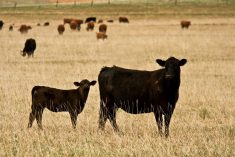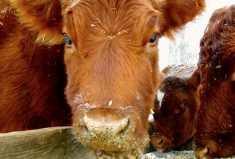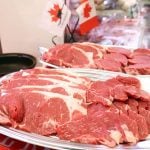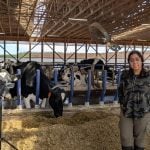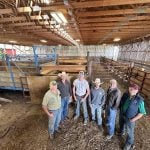Compared to last week, western Canadian yearlings traded $2-$5 lower while calves were solidly $3 to as much as $8 lower.
There’s a limit how far the cash trade can divorce from the futures market. November feeder cattle futures have dropped $12 from contract highs and there is no sign that this slide is over; therefore, buyers exhibited a defensive tone and lowered their bids accordingly. Some major operations totally stopped buying and pulled in their orders across Western Canada. The U.S. Department of Agriculture reported that markets in the southern Plains and the Midwest were down $5-$7 on average with some regions down as much as $10-$12. Orders from south of the border were sharply below week-ago levels, resulting in a softer tone in the eastern Prairie regions. Alberta packers were buying fed cattle at $270 f.o.b. the feedlot on a dressed basis, down from the range of $271-$273 last week. The cash market is lagging the futures complex but remember, it’s a futures market. Third-quarter U.S. beef production is expected to be 300 million lbs. above year-ago levels. At the same time, fed and feeder cattle futures have incorporated a risk discount due to uncertainty in beef demand.
Read Also
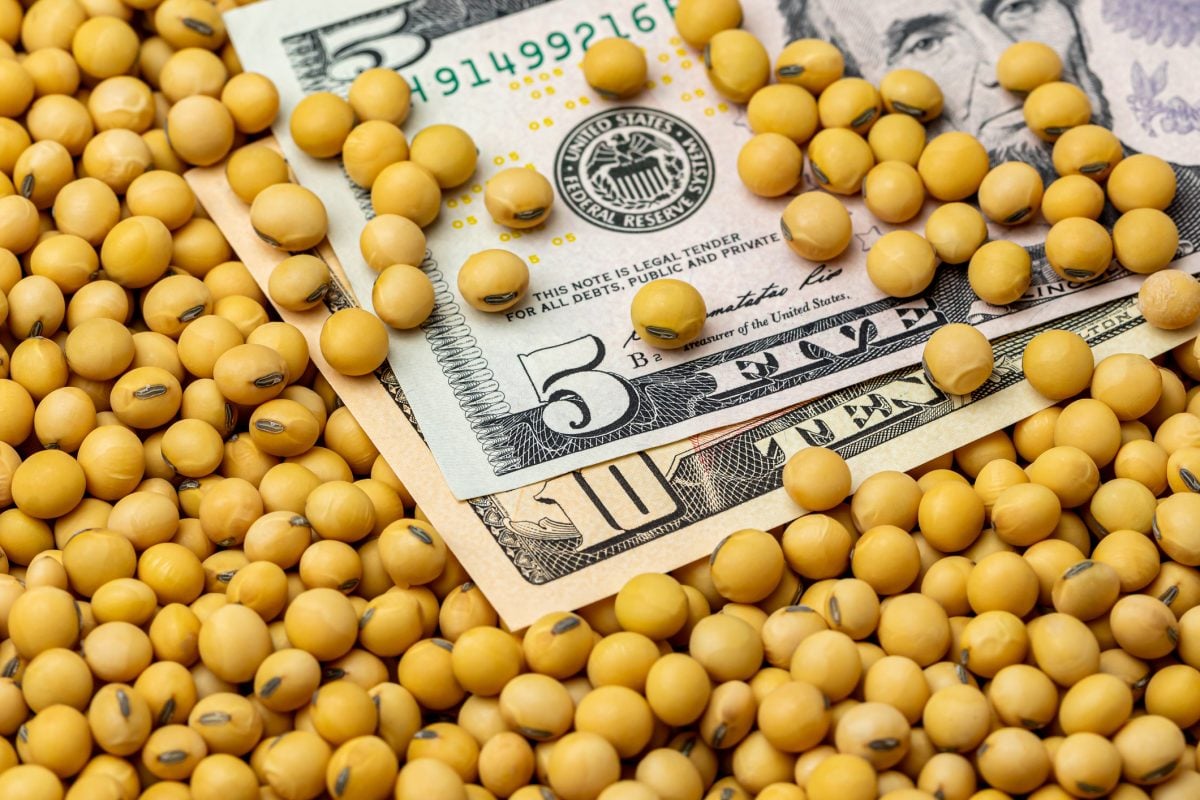
U.S. grains: Soybeans set 15-month high on U.S.-China trade deal hopes
Chicago soybean futures reached their highest in 15 months on Tuesday, briefly topping $11 a bushel on optimism that the U.S. could reach a trade deal with China as leaders from both countries are expected to meet in South Korea on Thursday.
South of Edmonton, a small group of tan mixed medium-frame steers with heavier butter, averaging 945 lbs., were quoted at $168; heifers weighing 900 lbs. of similar quality were valued at $159. Buyers were very fussy this week in regards to flesh levels. Steers weighing 800-850 lbs. were quoted from $178 to as high as $190 landed in southern Alberta feedlots. Yearling heifers weighing 800-850 lbs. were quoted from $158 to as high as $165 in the same region.
Calf markets were also quite variable. In northern Manitoba, red mixed steers weighing 520 lbs. were quoted at $244 while Charolais-blended heifers weighing 540 lbs. were valued at $207. In central Alberta, Simmental-based steers weighing 620 lbs. were quoted at $216 while a small group of Hereford mixed heifers weighing just over 600 lbs. were valued at $194; larger-frame tan medium- to lower-flesh heifers weighing 660 lbs. were quoted at $210.
Feed grain prices also bounced last week. Seeding delays in the Midwest and Western Canada have caused farmer selling to slow resulting in a stronger market for barley and U.S. corn.
— Jerry Klassen manages the Canadian office of Swiss-based grain trader GAP SA Grains and Produits Ltd. and is president and founder of Resilient Capital, specializing in proprietary commodity futures trading and market analysis. Jerry consults with feedlots on risk management and writes a weekly cattle market commentary. He can be reached at 204-504-8339 or via his website at ResilCapital.com.






